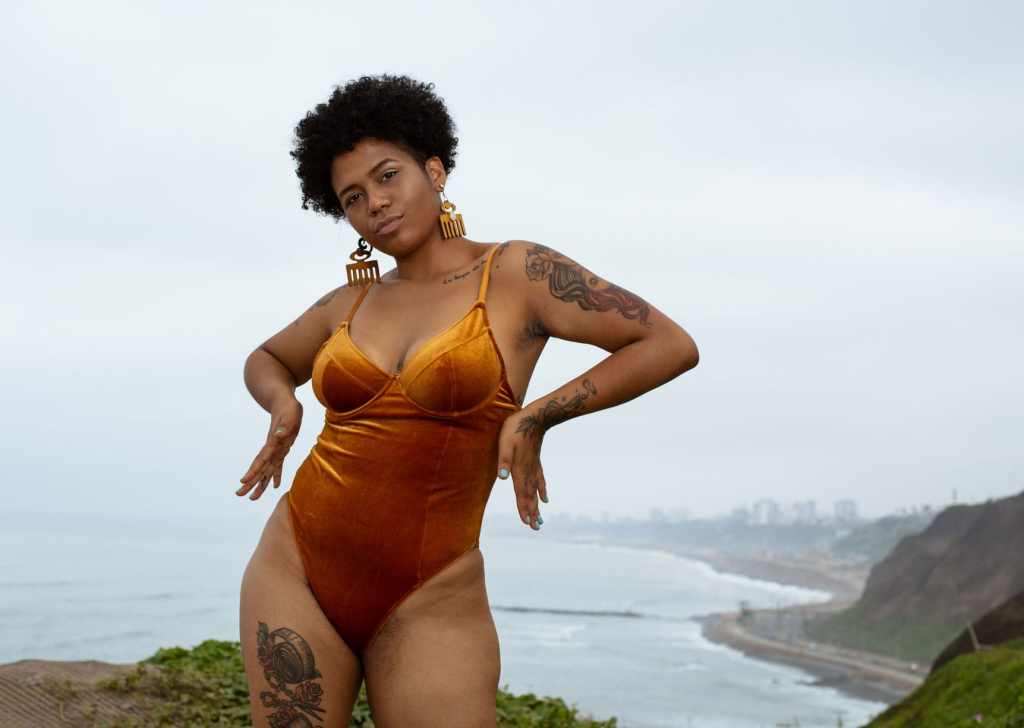
- POPSUGAR Australia
- Fitness
- Experts Share 6 Simple Ways You Can Start Eating With Food Freedom
Experts Share 6 Simple Ways You Can Start Eating With Food Freedom

The diet, health, and wellness industries are worth trillions of dollars – they profit by making consumers believe they’re not OK the way they are. So when we start to examine our relationship with food and challenge some our beliefs, it can feel counterintuitive and even wrong since dieting mentality is everywhere. However, strict diets and rigid rules don’t work to improve health, and they can create stress and shame and lead to harmful habits and thoughts.
Wouldn’t it be amazing if you could ditch dieting for good, not have losing weight be your sole purpose in life, fully enjoy eating, and not have food and diet culture messages control your life? That’s what it means to have food freedom. It creates more joy and less stress, which contributes to overall health and well-being. Here are expert tips on how to start eating with food freedom.
Related: I'm Scared Ditching Diets Will Cause Weight Gain – How Do I Stop Caring About My Weight?
Get Educated and Inspired
We interviewed registered dietitians and therapists, and they agree that getting educated about the antidiet and intuitive eating movements will help you realize the harmful effects of dieting on your mental and physical health. You’ll get the message loud and clear that dieting doesn’t work and can actually make you gain weight and develop disordered eating habits. Once you learn all the truths about the dangers of restrictive dieting, you might feel inspired to start living with food freedom.
Licensed mental health counselor, Molly Bahr, LMHC, who’s also an intuitive eating counselor who specializes in HAES (health at every size) and is fat-positive, recommended reading Intuitive Eating ($16) by Evelyn Tribole and Elyse Resch. Other insightful books include The F*ck It Diet ($17) by Caroline Dooner, Anti-Diet ($11) by Christy Harrison, MPH, RD, CDN, Health at Every Size ($8) by Linda Bacon, PhD, and Body Kindness ($14) by Rebecca Scritchfield, RDN.
“This is going to be like learning a new language while living in a culture that doesn’t speak the language, so it’s helpful to immerse yourself with information and support as much as possible,” Bahr said.
Another great resource recommended by Nicole Cruz, RDN, who specializes in helping clients make peace with food and their bodies, is the Intuitive Eating Workbook ($17). It’s a great way to work through the 10 principles of intuitive eating and achieve food freedom.
There are also many podcasts about intuitive eating, HAES, and improving body image. Bahr suggested Food Psych (also one of my faves!), Dietitian’s Unplugged, Love Food, Don’t Salt My Game.
Find Support
While resources like books and podcasts are helpful, you also want to make sure that your new food freedom lifestyle is supported wherever you are. Tell your friends and family about it so they can be as supportive as possible.
Also make sure your social media accounts are encouraging this lifestyle – unfriend or unfollow anyone that focuses on dieting or weight loss, or that trigger you to feel bad about yourself or go back to harmful disordered eating habits. And follow antidiet, intuitive eating accounts like these.
It’s OK to ask for help! If you need more assistance, Bahr said there are registered dietitians and licensed therapists who are certified intuitive eating counselors and can help support you in this process. Joining an intuitive eating support group can be helpful as well.
Get Personal
Whether you use the Intuitive Eating Workbook or a good ol’ fashioned journal, explore and get curious about the idea of food freedom. Doing some of the mental work first can really help with lowering fears associated with introducing what you previously considered “bad” foods back into your diet, or eating more than you were when on a restrictive diet. This can be really helpful for those who have dieted for a long time, Brianne Collette, RD, told POPSUGAR. She said, “review what your beliefs are around food. How can you look at them or think about them differently that would reduce guilt? Re-write your new beliefs!”
Cruz said you can also ask yourself questions like:
- “Why do I choose to eat certain foods? Because I was told these foods are ‘good’ or healthy, or because I was told to reduce or eliminate others?”
- “Why do I start or stop eating? Because I’m following a plan and supposed to eat at a certain time, or do I stop because I’m using the portion size as my guide as opposed to my own hunger and fullness?”
- “How do my food choices make me feel about myself? Do you feel guilty when you eat some foods or good about yourself for others? Do you use language like, ‘I’m being good today?'”
You can also reflect on your experience with dieting, how you felt mentally and physically, and list all the reasons that it didn’t serve you. Think about what you want your relationship with food to look like now. Registered dietitian Brenna O’Malley, creator of the health blog The Wellful said to ask, “What does food freedom mean to me? How would it help me live a life more in line with my values and what’s important to me?”
It’s really important and powerful to give yourself that opportunity to reflect on what you’ll gain from food freedom and working on your relationship with food. O’Malley said it gives you something to look forward to and it also gives you more concrete goals.
Honor Your Emotional and Physical Hunger
Start exploring your own relationship to food on a deeper level, said Kirsten Ackerman, MS, RD, CDN, who hosts the Intuitive Bites podcast and identifies as a fat-positive dietitian.
She said to begin paying attention to your body’s cues around hunger, fullness, and satisfaction – emotionally and physically. Get curious about how well you are honoring those cues right now or how you might be able to honor them better.
Consider which foods you have a challenging relationship with and explore what happens when you allow unconditional permission to eat them. Sounds amazing, but also scary, right?
You may feel nervous that you won’t be able to stop eating the foods that were previously off-limits. “Overeating is one of the biggest concerns I see,” Collette said, and oftentimes being able to bring in mindfulness and start to listen and trust your cues can be very helpful with this. Find peace knowing there will be a period of time where you want to eat “all the foods,” and eat a lot, but that your body will soon regulate its desire and need for those foods. When they’re no longer off-limits, and you can eat them whenever you want, they’ll likely lose their appeal.
Work on Loving Yourself
It would be difficult to do this food freedom work without simultaneously working on body image. Losing weight doesn’t usually fix body image, Bahr said. “Often people find that no matter how much their body changes, it’s just never enough because body image is an inside job.”
Having positive body image has more to do with being kind, compassionate, and respectful to ourselves than liking how our bodies look. Instead of trying to change your size, shape, and appearance, focus on body acceptance (or body neutrality), body functionality, and body appreciation as you are right now.
“I often ask, what would your 99-year old self appreciate about your current body? What will they wish you had done more of with your time? What will they wish you had done less of?,” Bahr said. We also need to understand why we don’t like our bodies and who plants and profits off those ideas.
Colette shared that if a client comes to her wanting food freedom, but their fear of weight gain or hatred for their body is just as concerning as their relationship with food, they’ll focus on body image prior to addressing food. “Once there is less pressure on food and its impact on the body, once body image starts to move more towards respect and acceptance, then sometimes food freedom is much easier to achieve,” Colette said.
You can use journaling to help improve your body image. Some journal prompt ideas are: What do you believe your body says about you? Do you believe these things about other people or do you not judge others on their body shape or size? Is this how you would talk to your mother, daughter, or friend about their body?
It Can Be a Long Journey to Food Freedom
It’s important to understand that this process can take a lot longer than you think it will, Bahr explained. Consider how long you’ve been living with diet mentality; it’s going to take time to uncover all the layers. She said to practice self-compassion and extend kindness and understanding to yourself throughout this process.
Tune in and ask what you feel ready to let go of or start doing first. Everyone has different levels of comfort. You may want to take baby steps or you may want to jump all in. Bahr said that some people are ready to throw their scales out right away. Some hold off on tracking their weight but stop tracking their food intake, and they take it one day at a time. Do what feels right to you.
This process may feel really hard and that’s OK. As humans, when we restrict ourselves from our basic needs, our biology will fight back and eventually primal hunger kicks in. When you begin listening to your body, it’ll want to keep eating because it’s trying to keep you alive. Bahr said that eating may feel really chaotic for some time, but eventually habituation will kick in and you’ll learn to trust yourself and your body. “The pendulum will swing with less force in each direction and eating will normalize. This is when we experience food freedom,” she said.







